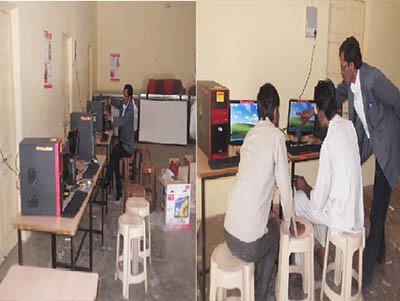Home / All Socio-economic Activities / “Imparting Computer Training to the Artisans” On route to being tech savvy…
SETU is associated with many women artisans doing appliqué and embroidery works, braving poverty as well as the harsh conditions of the Thar Desert region in west Rajasthan. Opportunities for livelihood and development are low. SETU tries to make them self-sustainable by partnering with them and helping them to develop new products & providing marketing platform for the products they create. In these remote desert areas, people do not have access to even basic facilities like clean drinking water, proper sanitation and proper shelter. In such circumstances, education takes a back seat. Though primary education is available in some of the areas but for secondary & higher education, artisans have to send their children to nearby cities. Access to computers and internet technology remains an unfulfilled dream for them. The basic computer skills that are required to apply for jobs are out of reach for most of them as they do not have access to computers. This is a major issue, as in today’s times; even small jobs require fundamental computer knowledge. SETU realised the gravity of the issue and thus decided to launch a project aiming to impart computer knowledge among the artisans and their family members. And thus, SETU set up a Computer Training Centre for the artisans, with the help of our partner artisan group, SURE at Barmer, Rajasthan.
Aims and Objectives of the Project:
• To create awareness about the importance of computer education among the artisan groups.
• To provide basic computer knowledge to artisans & their family members.
• To help artisans in applying for jobs by making them computer literate.
• Promoting self sustainability and self-confidence.
• Making artisans live at par with the contemporary times.

SETU has not only installed computer systems, UPS and necessary furniture, but also sponsored qualified trainer for imparting the computer knowledge. The training module & duration of sessions have been meticulously planned and periodic assessments of the quality of training would be done.